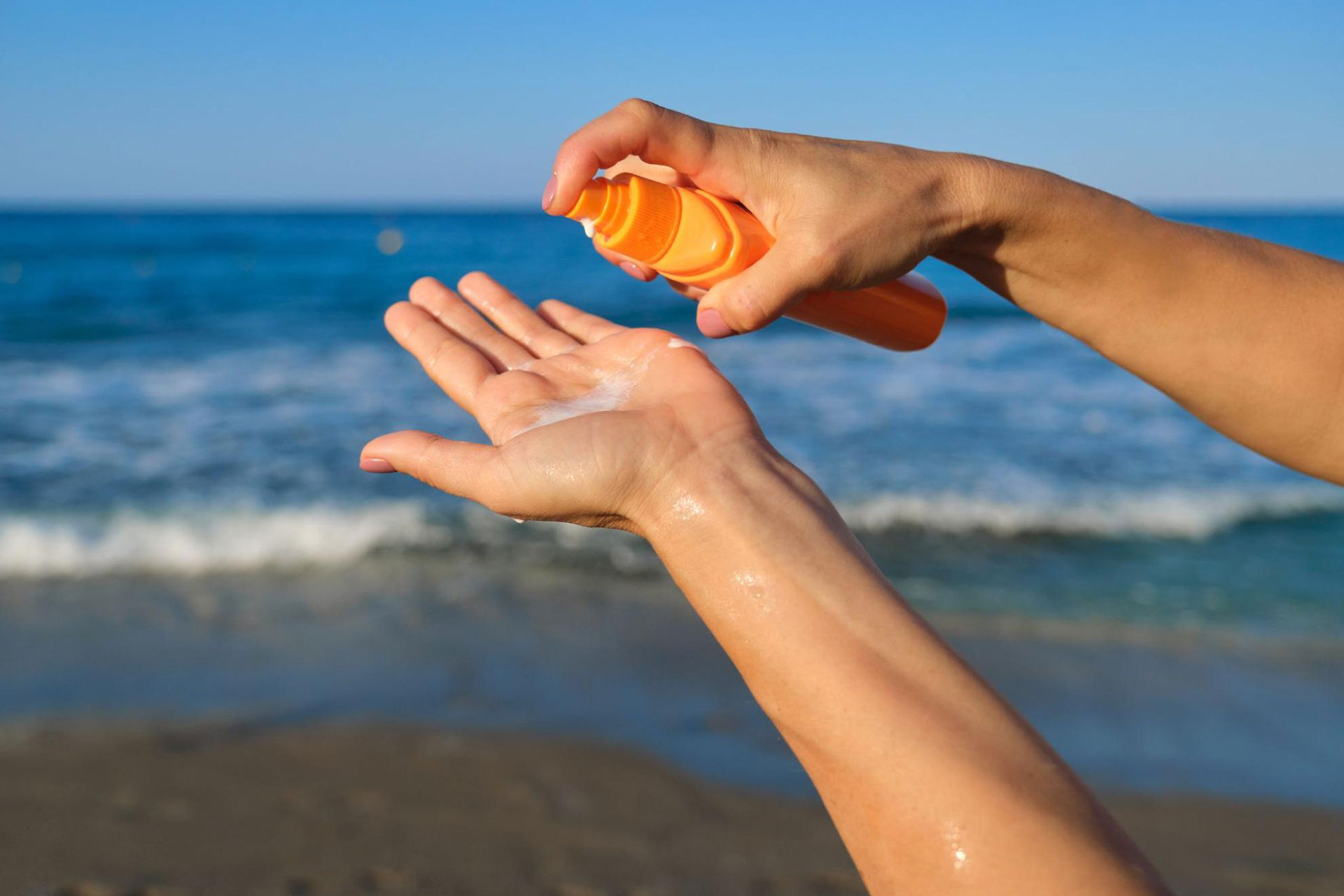Debunking 8 Myths About Sunscreen

As summer approaches, many of us are getting ready to spend more time outdoors. Whether it’s a day at the beach, a hike in the woods, or just running errands around town, it’s important to protect your skin from the sun’s harmful rays. But with so much information out there about sunscreen, it can be hard to know what to believe. That’s why in this blog, we will be debunking some of the most common myths about sunscreen to help you make informed choices about sun protection.
Related: 7 Reasons Why You Should Wear Sunscreen Everyday
Myth #1: Sunscreen is only necessary on sunny days.
One of the most pervasive myths about sunscreen is that it’s only necessary on sunny days. The truth is that even on cloudy days, the sun’s UV rays can penetrate the clouds and reach your skin. In fact, up to 80% of the sun’s UV radiation can pass through clouds. This means that even if you can’t see the sun or you’re staying indoors throughout the whole day, it’s important to wear sunscreen to protect your skin as UV rays can still pass through the window glass.
Related: 8 Skin Care Misconceptions You Have to Stop Believing
Myth #2: Sunscreen with a higher SPF is always better.
Another common myth is that sunscreen with a higher SPF is always better. While it’s true that sunscreens with higher SPF provide more protection against the sun’s UV rays, there is a point of diminishing returns.
According to the American Academy of Dermatology, SPF 30 provides adequate protection for most people, and anything higher than that only provides a minimal increase in protection. Furthermore, higher SPF sunscreens tend to be thicker and more difficult to apply, which can lead to people using less of it and getting less protection overall.
Myth #3: Sunscreen is the only protection you need.
While sunscreen is an essential part of sun protection, it’s not the only thing you should rely on. Other measures, such as seeking shade, wearing protective clothing, and avoiding the sun, especially during peak hours (usually between 10 a.m. and 4 p.m.), can also serve as an extra protection against the sun’s harmful rays. Although, do keep in mind that sunscreen needs to be reapplied every two hours or after swimming or sweating, so don’t rely solely on sunscreen to protect your skin.
Myth #4: Sunscreen is only necessary for fair-skinned people.
This myth absolutely needs to be debunked. It’s not true that sunscreen is only necessary for fair-skinned people who are more prone to sunburns. While fair-skinned people may be at a higher risk of sun damage, everyone is still susceptible to the sun’s harmful rays. People with darker skin may not burn as easily, but they can still develop skin damage and skin cancer from prolonged exposure to the sun.
Myth #5: Sunscreen is safe to use on infants and young children.
Yes, sunscreen is important to protect our skin from the sun, but when it comes to infants and young children, you need to be more cautious. This is because many adult sunscreens contain chemicals that can be harmful to infants and young children, so it’s important to use a sunscreen that is specifically designed for their sensitive skin. It’s also advisable to keep infants under six months of age out of direct sunlight as much as possible.
Myth #6: All sunscreens are created equal.
There are many different types of sunscreen on the market, but not all of them are created equal. This is because some sunscreens contain chemical filters, while others use physical blockers like zinc oxide or titanium dioxide. Moreover, some sunscreens are water-resistant and others are not. It’s vital to choose a sunscreen that is appropriate for your skin type, offers adequate protection, and is easy to apply and reapply as needed. If you have sensitive skin or are prone to allergies, look for sunscreens that are labeled hypoallergenic or fragrance-free.
Myth #7: Sunscreen can cause vitamin D deficiency.
Some people believe that wearing sunscreen can lead to a vitamin D deficiency because it blocks the sun’s rays from reaching the skin. It’s true that vitamin D is produced in the skin in response to sunlight, however, it’s important to note that it only takes a few minutes of sun exposure each day to produce enough vitamin D. Additionally, there are many dietary sources of vitamin D, such as fatty fish, egg yolks, and fortified foods like milk and cereal, which is why using sunscreen is still a good way to protect your skin without sacrificing your vitamin D levels.
Myth #8: Sunscreen doesn’t expire.
Sunscreen, like all skincare products, has a shelf life and can expire over time. Expired sunscreen may not provide adequate protection against the sun’s rays, and can also cause skin irritation or breakouts. Most sunscreens have an expiration date printed on the packaging, so you have to discard any sunscreen that has expired or shows signs of deterioration, such as a change in texture or color.
There are many myths and misconceptions about sunscreen that can lead to inadequate protection against the sun’s harmful rays. Understanding the facts about sunscreen and taking additional measures to protect your skin can help you enjoy your time outdoors while minimizing your risk of skin damage and skin cancer. Bottomline: never forget to wear your sunscreen!
Are you looking for Skincare Products in the Philippines? Visit our page! We have a variety of items for you to browse! Like our Facebook page for updates!
